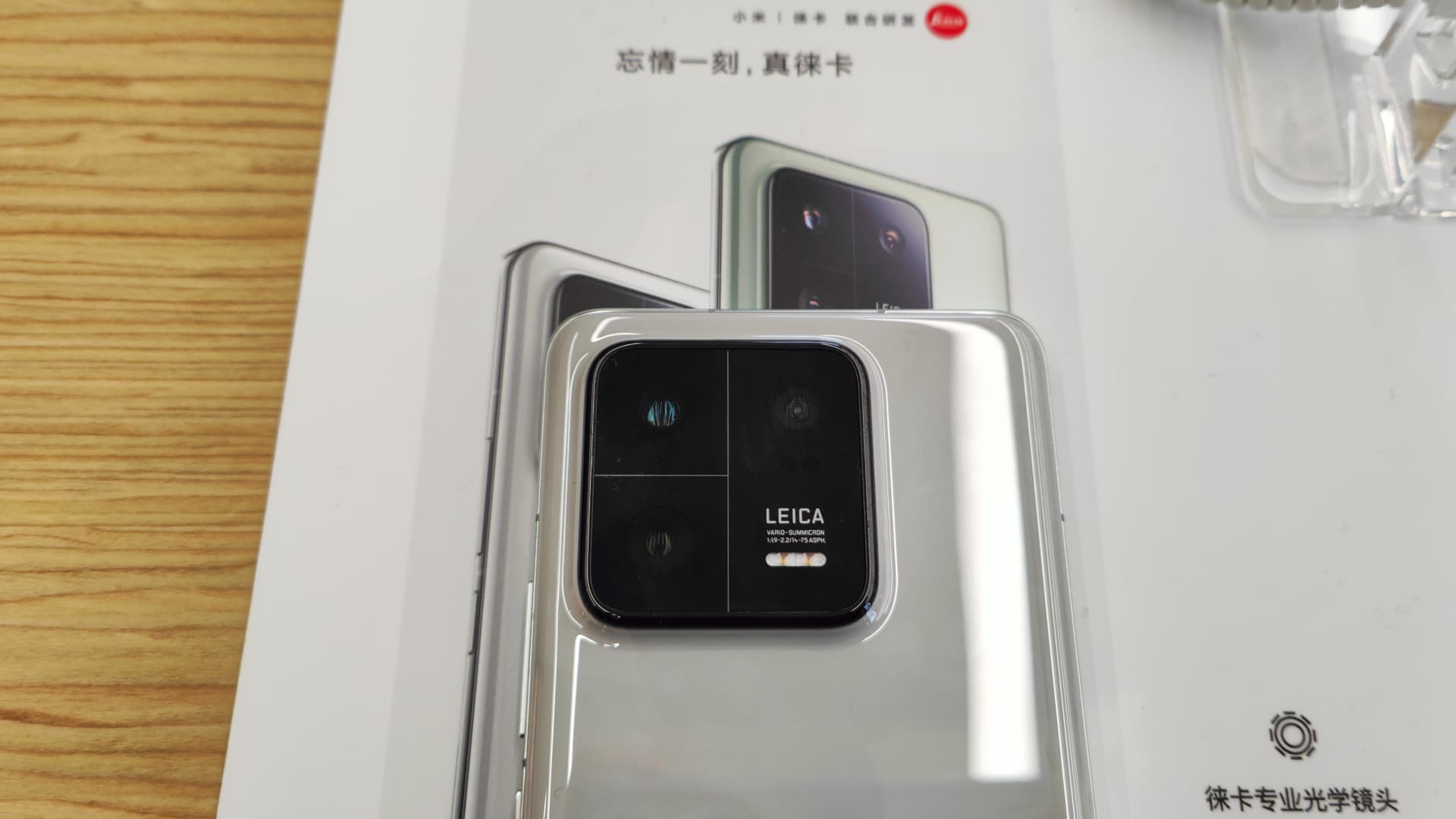Products You May Like
Xiaomi launched its flagship smartphone globally on Sunday as the Chinese electronics giant attempts to take a slice of the high-end market and challenge Apple and Samsung.
The Xiaomi 13 and 13 Pro were originally launched in China in December, but now the Beijing, China-headquartered company is bringing the devices to markets overseas.
The Xiaomi 13 Pro device sports a 6.73-inch display and the latest Snapdragon 8 Gen 2 chipset from U.S. firm Qualcomm. It has a triple-lens camera and other premium features like ultra-fast charging. The company talked up the capabilities of its camera that it “co-engineered” with German firm Leica.
The Xiaomi 13 starts at 999 euros ($1,053) while the 13 Pro starts at 1,299 euros.
Xiaomi had a rough year in 2022 with its smartphone shipments declining 26% year-on-year, according to research firm IDC, the biggest fall among the top five biggest handset vendors. The company swung to a loss in the September quarter, the latest financial results available.
Xiaomi has faced a number of headwinds, in particular a more difficult macroeconomic environment with a slowing economy in China. A total of 1.21 billion smartphones were shipped in 2022, which represents the lowest annual shipment total since 2013, according to IDC.
“Xiaomi is facing multiple headwinds inside China from an ever-popular Apple iPhone, a surprisingly strong Honor, and fickle Chinese consumers who often switch between Android hardware brands in a flash,” Neil Mawston, an analyst at TechInsights, told CNBC via email.
Honor is the Chinese smartphone brand that was spun off from Huawei.
Xiaomi has turned into one of the biggest smartphone makers over the years via a strategy of bringing out high-spec devices at very competitive price points. It began pushing into overseas markets around seven years ago, pursuing a similar strategy. But it is now looking to push into the higher end of the market, where margins are higher and the market is still growing.
High-end smartphones, those that cost over $800, accounted for 18% of the total handset market in 2022, up from 11% in 2020, Canalys data shows. Xiaomi’s push into the premium tier will pit it against Apple and Samsung, which will be a challenge for the Chinese rival. Samsung and Apple devices accounted for 92% of the high-end market in 2022, according to Canalys.
“Competing with Apple and Samsung is incredibly difficult. Not just matching market leading products, but particularly going up against enormous companies with exceptional brand awareness, high-end perceptions, experience focused solutions and product ecosystems with high user-stickiness,” Runar Bjørhovde, research analyst at Canalys, told CNBC via email.
Xiaomi is the latest Chinese smartphone player that is trying to crack the high-end of the market. Oppo launched its first foldable phone for the overseas market this month that costs more than $1,000.
